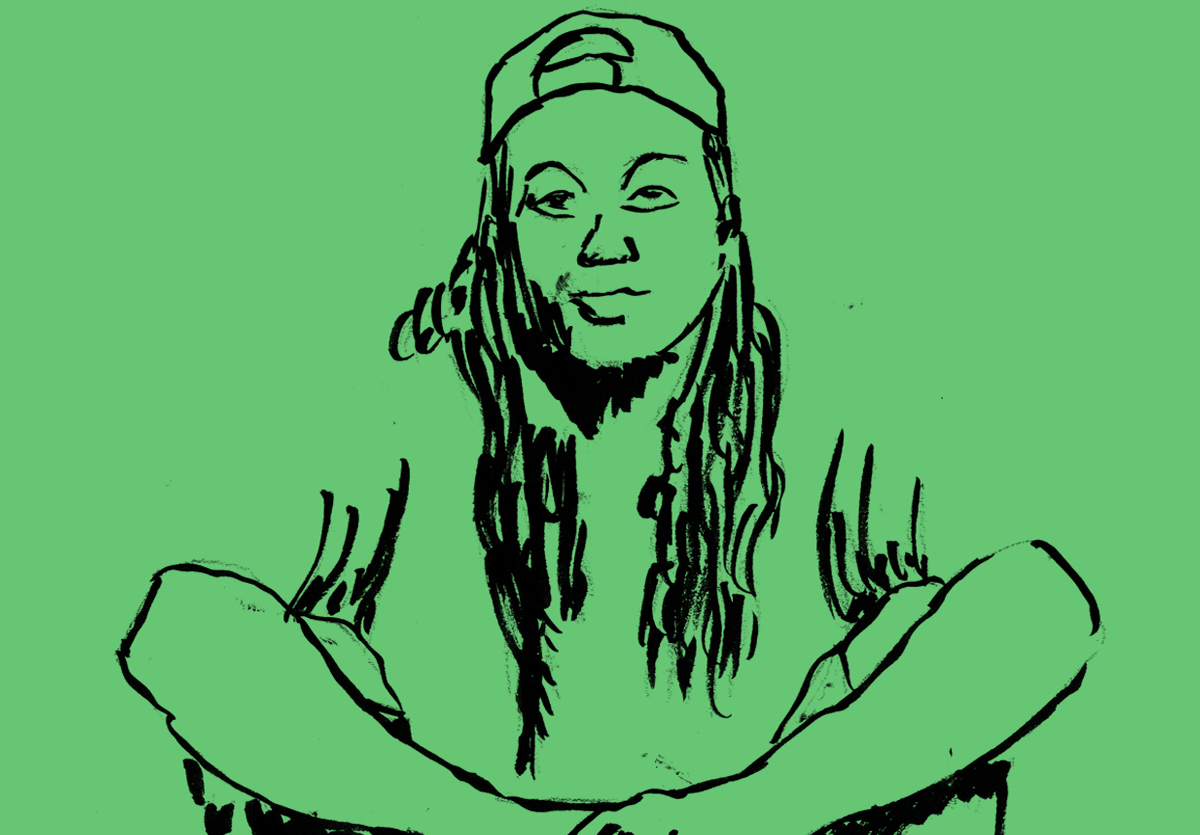The stories of aspiring artists being plucked out of the swamp of social media have settled into modern myth. Sites like YouTube are now inundated with content, making it nearly impossible to have your voice heard or art seen by anyone important, unless of course you’re talented, hard-working and lucky. In the case of 23-year-old self-taught musician Tash Sultana, she was all three.
In 2016, Sultana posted a home recording of her original song, “Jungle,” on YouTube. The video reached 1 million views after only five days, and remains her most watched video at 41 million views. Later that year, Sultana released her first EP, “Notion,” and as to be expected judging from the success of “Jungle,” the EP was well-received, peaking at No. 8 on the ARIA charts.
The rise to recognition, however, wasn’t easy for Sultana. The music she shared with the world was, and remains, the refuge that she rested in and the rescuer from the darkness in her life. At 17, Sultana (who openly describes herself as a former drug addict) experienced a drug-induced psychosis. For seven months after that incident, Sultana remained frighteningly disconnected from reality, unable to attend school due to her mental-health issues and struggling to create music.
To help her recover, she turned to music and music therapy. In an interview with triple j’s Veronica and Lewis, Sultana said, “I went into my room one day and I was just strumming and I realized that I achieved complete peace of mind while I was doing that … I had finally found some quiet so I literally played and played and played and played until I played the pain away.”
This reinvigorated love for music sent her into a frenzy of creation. She began to work the streets as a busker, playing her songs for passersby and gaining a significant following in her hometown of Melbourne, Australia. When she was nearly 19, she uploaded her first home recording to YouTube (which garnered thousands of views), and began the process of sharing her work with a wider audience than passersby on the street.
Just a little over a year later, her hard work paid off when “Jungle” went viral and lifted her to renown. During this time, she was selling out local shows in Melbourne with only street performances and YouTube videos under her belt, and later sold out a world tour after the release of her first EP.
This astonishing success does not seem to distract Sultana or stroke her ego, but rather it appears to serve as a reminder of how far she has come. “What I did when I was younger permanently affected me,” Sultana told Radio NZ. These permanent effects of her psychotic reaction to psychedelics appear strongly in her art, as she processes her experiences through music. Her EP “Notion,” released only several years after her harrowing drug trip, relates her recovery to listeners while it’s still fairly fresh, with tinges of a quiet hopelessness running through.
In her debut album, “Flow State,” which dropped in August of last year, Sultana uses her drug history to serve as the majority of the album’s lyrical scene, but this time with a more hopeful hue. Almost every song, no matter where it may have strayed in relaying her psychotic experience, ends on an optimistic note. A few songs, like “Mellow Marmalade” and “Harvest Love,” even turn their focus from inward trouble to outward beauty in the pleasure of being in love with someone.
This processing of her experiences through her lyrics is of course a vital part of Sultana’s work, but more central is the music behind it. Many, if not all, of her songs spend most of the time wordless, letting the music speak instead. And, for Sultana, they speak volumes. Listeners get the sense that her music speaks better than her words can, and listening to her talk through her instruments is a beautiful reminder of what music is supposed to be.
Other artists I’ve encountered that attempt to use lengthy instrumentals often leave me bored, waiting for the hook to drop or the lyrics to begin — but not Sultana. Her songs are so skillfully composed that by the time the lyrics begin or the hook drops, four minutes of song have passed by and I’ve barely noticed.
Her sound is utterly immersive and every moment of instrumental feels purposeful and necessary. The arsenal of instruments she taught herself to use (including bass, flute, trumpet and mandolin) all blend to form intelligent, layered masterpieces that build slowly to a climax and then unravel to offer a denouement that will leave you breathless and absorbed in what you just heard.
It is this immersion that gives listeners a sense of how cathartic this music is for Sultana. In every song her brain is healing, bit by bit, through an electric guitar; through every punch of percussion her heart beats. This is evident in her home recordings on YouTube: she bobs, bounces, sways and stomps to her music, radiating passion, spellbound by the beauty she is creating.
The artistry with which she orchestrates her music and the honesty in her lyrics speak to the powerful presence she carries in the music scene. Not everybody can go from a relatively unknown busker to viral alt-rock sensation in five days, and not everybody can recover from a psychotic break and turn it into something beautiful. Tash Sultana is beyond special, a magician with sound.
















